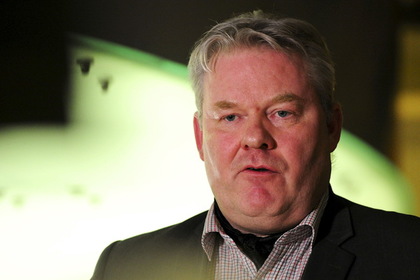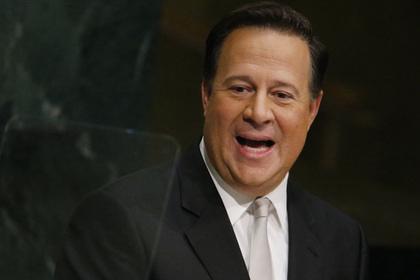АГУ
Мэтр
- Регистрация
- 01.02.2012
- Сообщения
- 23 817
- Реакции
- 944
Полиция провела обыски в штаб-квартире УЕФА из-за материалов об офшорах

Полиция Швейцарии провела обыски в офисе Союза европейских футбольных ассоциаций (УЕФА) в рамках расследования дела о панамских офшорах. Об этом в среду, 6 апреля, сообщает «Би-би-си».
Имя бывшего генерального секретаря УЕФА, а ныне президента Международной федерации футбола (ФИФА) Джанни Инфатино упоминалось в документах по офшорам. В 2006 году он продал права на трансляцию матчей Лиги чемпионов компании Cross Trading.

Полиция Швейцарии провела обыски в офисе Союза европейских футбольных ассоциаций (УЕФА) в рамках расследования дела о панамских офшорах. Об этом в среду, 6 апреля, сообщает «Би-би-си».
Имя бывшего генерального секретаря УЕФА, а ныне президента Международной федерации футбола (ФИФА) Джанни Инфатино упоминалось в документах по офшорам. В 2006 году он продал права на трансляцию матчей Лиги чемпионов компании Cross Trading.
По данным материалов, компания выплатила по контракту 111 тысяч долларов и сразу перепродала права эквадорской вещательной корпорации Teleamazonas за 311 тысяч долларов. Позднее ФБР уличало владельцев Cross Trading — бизнесмена Хьюго Джинкиса (Hugo Jinkis) и его сына Мариано (Mariano) — в мошенничестве.
В ходе обысков полиция изъяла из штаб-квартиры УЕФА детали контракта. В Союзе подтвердили произведенные обыски и пообещали всецело сотрудничать с правоохранительными органами. УЕФА при этом отрицает факты нарушений со стороны должностных лиц организации и торговых партнеров.
3 апреля Международный консорциум журналистских расследований (ICIJ) совместно с Организацией по информированию об организованной преступности и коррупции (OCCRP) опубликовал масштабное расследование, основанное на документах панамского регистратора офшоров Mossack Fonseca. Эти документы неизвестный источник передал немецкой газете Süddeutsche Zeitung. Журналисты нашли информацию об офшорах множества известных спортсменов, звезд кино и политиков.
В ходе обысков полиция изъяла из штаб-квартиры УЕФА детали контракта. В Союзе подтвердили произведенные обыски и пообещали всецело сотрудничать с правоохранительными органами. УЕФА при этом отрицает факты нарушений со стороны должностных лиц организации и торговых партнеров.
3 апреля Международный консорциум журналистских расследований (ICIJ) совместно с Организацией по информированию об организованной преступности и коррупции (OCCRP) опубликовал масштабное расследование, основанное на документах панамского регистратора офшоров Mossack Fonseca. Эти документы неизвестный источник передал немецкой газете Süddeutsche Zeitung. Журналисты нашли информацию об офшорах множества известных спортсменов, звезд кино и политиков.













